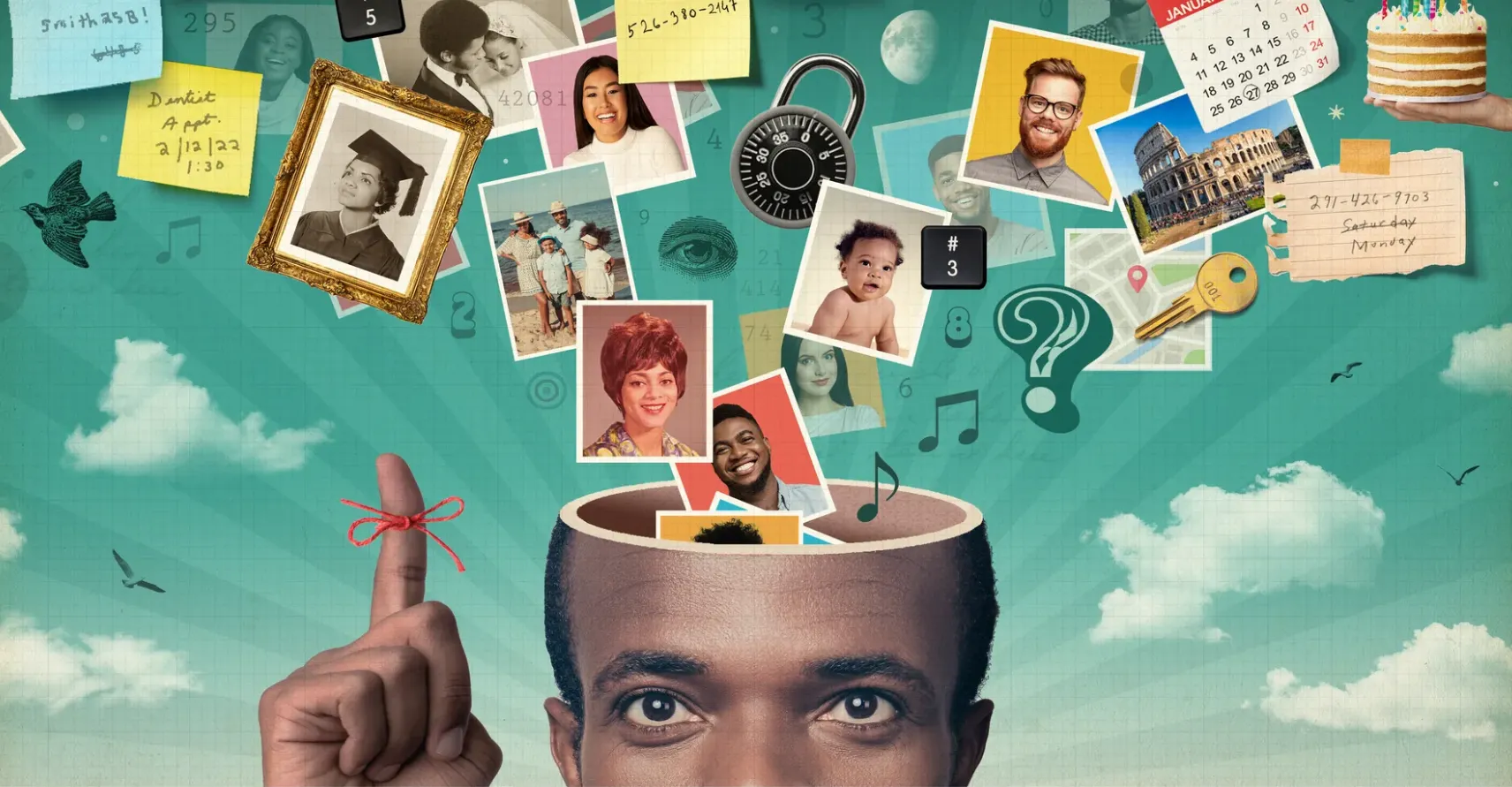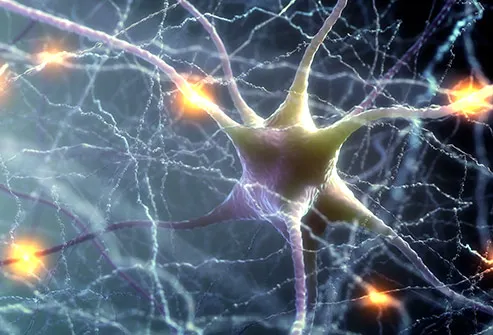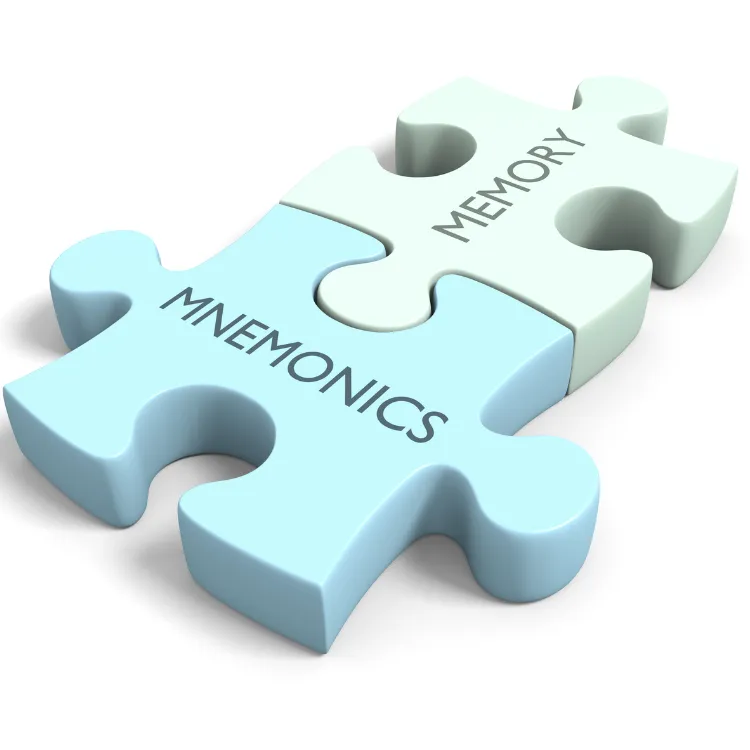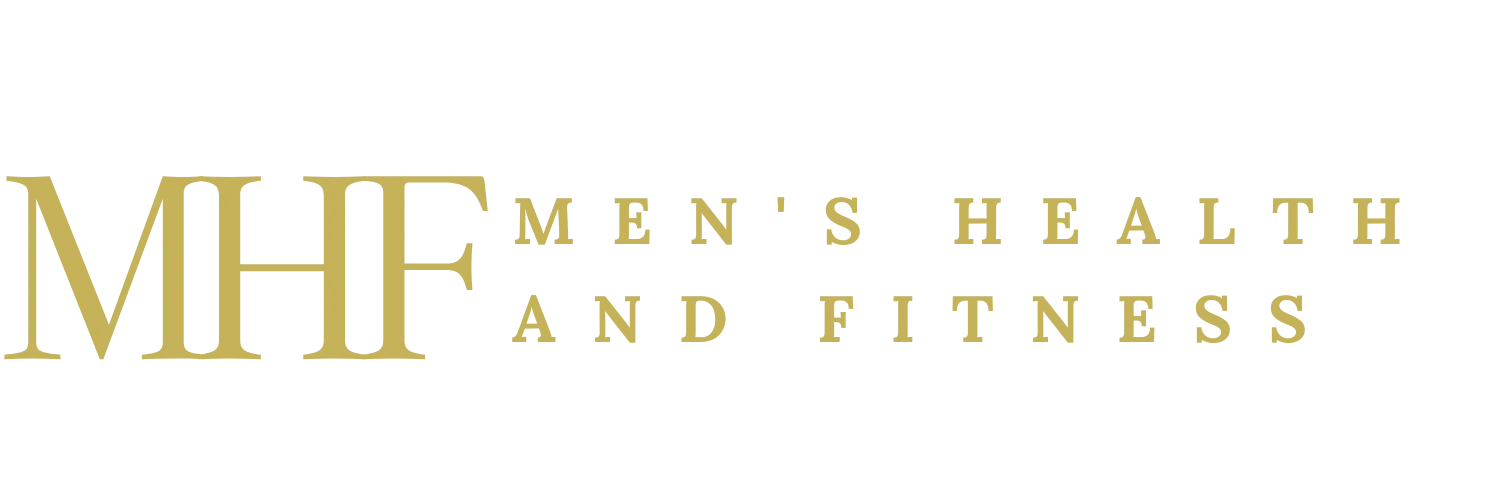How To Sharpen Your Mind And Improve Your Memory

Are you looking for a way to become more effective and productive?
Strengthening your mind will improve your ability to perform other tasks. Strengthening your brain will improve your ability to do everything else.
When you're not getting the results you want from life, it might be time to look at yourself and make some changes. Your brain is what helps you solve problems, make decisions, and plan for the future.
By changing yourself, you change what's possible.
You may want to upgrade your memory first. It's a good place to start.
You will improve your ability to learn and store new information by enhancing your memory. This will increase your skill set, bulk up your resume, and help you land the job you have always dreamed about.
With the knowledge you will gain in this report, you will know exactly how to learn these skills, as well as what to do with them.
Are you ready to unlock the full potential of your brain?
Neuroplasticity and the Science of Learning
It is of utmost importance to understand how your brain works, so that you can "hack" it in order to boost your memory and brain power.
The brain is essentially a network of interconnected brain cells, or neurons. These neurons represent different sensations, memories, thoughts, or actions in your life.
There are different areas of the brain that have various functions. For example, the visual cortex is the area in the brain that is primarily responsible for seeing.
In the same way, stimulating neurons in the hippocampus, which is primarily responsible for memory, could bring back vivid memories.
Scientists have conducted these experiments, and they work because neurons are electrical and carry electrical signals called "action potentials."
During an action potential, neurons send electrical currents down a tail called an axon when they reach a certain threshold. Usually, the signal travels across a gap known as a synapses to nearby neurons, where it is used as an input terminal.
Those neurons will also fire as a result of this stimulation, sending the message further down the axon. This way, a thought or sensation will spread throughout the entire network.
A new memory, or a new experience, will result in new neurons and connections being formed in the brain.
The term "brain plasticity" refers to the ability of the brain to grow and change shape, just like muscles. As you use specific areas of the brain, those areas grow.
The more skills and knowledge you gain, the more your brain will expand and change!
Plasticity is predicated on one rule that can be represented with a simple maxim:
“Neurons that fire together, wire together.”
The result of this is that two neurons will gradually form new connections if they are repeatedly used at the same time. It is for this reason that it is easy for us to say the alphabet in order - because those neurons have formed a network which makes it easy to go from A to B to C. Besides learning dance routines, this is also how we make associations between different memories and events.
When you learn something new, you will make new neurons and make new connections between them. The same way, every experience you have during your day creates episodic memories, which are composed of networks of sights, smells, emotions, and things you did during your day.
When you rehearse something, you make it easier to recall it. The more you repeat something, the more the neurons are firing together, and the stronger the connections become.
We now believe that during sleep, your brain will "move" memories from your short term memory to your long term memory if they are deemed important enough.
The brain consolidates memories by moving them from the hippocampus to the cortex during this process. There is not yet an understanding of this field in neuroscience, but it is the basic idea. The brain needs to be highly plastic to allow neurons to grow and connect. Among the neurotransmitters (brain hormones) that help to promote this growth are dopamine and brain derived neurotrophic factor.
Axonal neurotransmitters can also contribute to emotional significance and weight to a particular memory or experience when released during an action potential.
For example, cortisol is the "stress hormone" that makes us feel anxious, as well as making an event seem particularly relevant.
Dopamine, the "reward hormone," and serotonin, the "feel-good hormone," all play a key role in modulating our reactions.
Neuroscience as a tool for smarter learning

The basic principles of neuroscience can be applied to learning in many ways. Here are a few examples.
Spaced Learning
Studies have shown that spaced learning is more effective than other methods of learning.
By breaking up your learning into period of revision and short breaks, you can effectively give your neurons a 'cool down period' where they don't hold any residual charge.
As a result, when you return to revision, it is as if you are starting a new training session.
This repetition is more effective than one extended bout of learning, which means you learn more and more quickly.
Emotion
Neurotransmitters have been shown to be instrumental in our ability to retain bits of information that might be useful for our survival. When we experience something extremely stressful, exciting, or pleasurable, hormones are released in large quantities.
These hormones help us build stronger connections in our brain.
Whenever we believe we are about to receive a reward, dopamine will increase brain-derived neurotrophic factor production.
It is for this reason that you are probably able to recall the last argument you had, but not the last week's dinner. Also, dry bits of data are dull and have no emotional component to them, which is why it is so hard to remember who was Prime Minister in 1934.
The trick is to turn boring facts and figures into exciting, relevant, and interesting things. Even better, we should make learning itself enjoyable and rewarding.
The following are some examples of how you can do that:
Visual Education:
What can a teacher do to make a boring lesson more interesting and control a rowdy class? Simple: put a video on. Video is much more stimulating than reading or just looking at something on a blackboard because it holds our attention much better than just watching something on a screen. It doesn't matter whether it's the same topic as what they were struggling to teach; the simple fact is that video is way better at keeping our attention. How about trying YouTube videos if you are trying to learn something new and finding it boring?
This works because we form more concrete memories when we hear people talking, hear music, and watch things happen.
Multitasking:
Despite the fact that learning on its own can be boring, doing it at the same time as something more engaging will keep you engaged and save you a lot of time. Reading a text book while running on a treadmill is an example of this, while listening to an audio tape while playing a computer game on mute is another example of this.
Using this method won't strengthen your memories, but it can improve your motivation, allowing you to spend more time learning.
Create Something:
Another effective way to learn is to create something as part of the process. You could write a blog about your learning, write a book, or even make an app!
By writing it down, you will reinforce what you're learning. At the same time, you will be able to offer it to others and possibly even earn from (and you can use the resource yourself).
We call this Feynman method, since it utilizes something we call The Feynman method when writing a book or article. In this technique, you read something, learn as much as you can, and then try to explain that concept to someone else as concisely as possible.
If you can't explain it clearly, then you go back and try again.
Make it a Game:
There are ways you can make learning a fun game, even though it might sound like something your Mum would try to force you to do to keep your room clean. Consider how you can turn what you're learning into something more fun than just a 'quiz' and develop a board game or another activity you'll enjoy.
Find the Angle That Appeals to You:
It is common to hear people complaining about how they never use the math skills they learned in school and that learning math doesn't seem to apply to your everyday life. We all have specific interests and hobbies, and we decide whether or not something is relevant to us based on these or to a part of our careers.
In reality, Math is useful for a variety of career paths and interests -- whether it's architecture where angles and areas have to be calculated, physics and space, or programming.
If you love making computer games, Math is the subject for you. The same goes for History, for English, and for every other subject - it is very likely to relate to your interests in some way.
In the event that you cannot find it naturally, you can always force it. For instance, say you're trying to get your kid to learn about history and he or she won't. Identify a TV program or game they like and explain to them that it is based on history or how life would have been like living in an action movie back then.
If you want to teach a kid who loves Sonic the Hedgehog about physics, discuss with them the physics behind running that fast, whether it would be possible, and what would happen to their bodies.
Nootropics

Nootropics, also called 'smart drugs', are increasingly popular as a means of enhancing the brain. They work normally by inhibiting transporters or by mimicking their effects in order to increase neurotransmitter availability.
As a nootropic, caffeine blocks the A1 receptors, which decreases the effectiveness of adenosine while increasing dopamine and norepinephrine simultaneously. While piracetam is a more 'underground' nootropic, it has been shown that acetylcholine increases in the brain, which aids memory.
These ultimately increase your level of alertness and awareness, which leads to more information being stored in your brain.
There are risks associated with using smart drugs – some users report experiencing brain fog from Piracetam, for example, and there is still uncertainty about its mechanisms of action. There is also the complexity of the interactions between nootropics, neurotransmitters, hormones, metabolism, and more.
The reward hormone dopamine cannot be increased alone without raising cortisol and adrenaline, which makes you more anxious and suppresses your immune system and digestion. In the long run, it could negatively affect your memory, as it can even damage sleep.
Boosting your neurotransmitters through a healthy diet is a better option. Consuming eggs, for instance, will provide you with choline, which the brain uses to produce acetylcholine.
Additionally, omega-3 fatty acids have been suggested to improve brain cell communication by improving membrane permeability - this may also increase recall. Studies have shown zinc to play a crucial role in the plasticity of the brain.
Mind Maps, Memory Palaces, and Other Memory Techniques
You can use any or all of the above techniques to make learning more appealing, and to prepare your brain to better process the information you provide. This section will explore how you can transmit that information to your brain.
To improve your recall, here are the best learning, revision, and memorization strategies.
The “Sheet Technique”
Sheet Technique essentially means cramming all the information you need on one sheet. By doing so, you can revise and test yourself all in one place, and you can even carry it with you anywhere you go – so you can revise while eating or even while talking to a man about a dog.
In that format, it certainly feels more manageable.
It's not just having it on a sheet that's helpful, but doing it again and again
So, let us say your subject, sandwiches. Read all your notes from throughout the year about sandwiches and summarize them into a few pages as much as possible. Do not write down anything you already know or ideas for essay answers - these are just the hard facts, the things you need to remember.
Then, over the course of two or three attempts, you'll need to narrow this down more and more using shorthand to jog your memory without having to write reams. Here, you want to put everything on one side of an A4 so that you can simply look down and see everything.
After you've reached this step, you should find that you've already absorbed a lot of information and dates without even trying. Now highlight some of the most important dates and facts on the sheet and start testing yourself.
With this, you can test yourself while doing other tasks absent-mindedly.
You can learn all you need to know in just a few hours of casual recital with just one sheet. It is not only possible to use your semantic memory but also your visual memory as you try to picture the sheet. You can also add sketches, highlights, bold text, and other elements that will help you remember the layout.
This is significantly less work because only one page needs to be learned.
Mind Maps
The use of mind maps can be very helpful when it comes to laying out all of this information on a single page.
A mind map is a diagram that shows relationships between several ideas on one page, similar to a web. You will have a main topic that will then be broken down into smaller segments, all interconnected by lines that demonstrate this relationship.
Mindly is a great app for building beautiful and functional mind maps quickly and easily.
There have been many uses for mind maps over the centuries, and they have proven to be highly effective when it comes to improving retention of new ideas and topics. But why?
The Brain Likes Context
Firstly, mind maps provide context for your ideas. The first thing you need to do when writing down a new idea or subject on a mind map is to locate the appropriate place to put it, and then show its relationship with other ideas by using arrows and connecting lines.
As a result, all the related ideas are connected.
If you were making a mind map of sea creatures, for instance, you might place one type of fish under a specific category to indicate its genus.
In addition to that, there might also be a heading showing the fish's habitat or how it reproduces, as well as all the other fish that are related to it.
In this way, you can 'jog' your memory by surrounding information with additional details. If you're sitting in an exam, you might not be able to remember the name of the fish right away, but if you remember the surrounding items – the related fish, the genus, the habitat – this might help you figure it out.
Cross-Modality
It is also the case that the brain prefers visual stimuli and will often find this easier to remember. With mind maps, you have the ability to combine images with text, color, sounds, and videos.
In this way, even if you can't recall the fish's name immediately, you might be able to remember where it was on the mind map and the image it was next to - and that might be enough to steer you in the right direction.
It is also the reason that watching television can help you ingest more information (as well as improve your emotional response and attention).
Documentaries provide a great way to learn more about a topic, not only from the content, but also from the music, the images, and more.
Sadly, Mindly doesn't allow you to add images and videos, but you can print out your work and then annotate and draw on it.
Organization
Lastly, by organizing information in a logical manner, a mind map makes it easier to retrieve the information and also means that it can be fit conveniently onto one page for easy access.
Once we've discussed how to organize your revision, how do you actually get it from the paper to the head?
Mnemonics

Mnemonics are “tricks” that help jog your memory, such as acronyms and rhymes. And we can take this even further - by creating mini-stories that link names and dates together.
Stranger and more nonsensical it is, the better chance you have of remembering it later.
A true memory master uses the technique of 'visualization' over telling a story, since our sensory memory is often more reliable. The story will be made up of many images, each linking to the next.
When you create a visual image of two consecutive images, you tie together a long list of objects. This method is especially good for remembering long lists of objects, such as a shopping list. For Monkey, Brick, Cleaner, Squirrel, you might visualize a monkey bashing himself with a brick – now think about it carefully and enjoy it for at least a moment.
Describe the process of feather dusting a brick. Make up your own examples if they are funny or bizarre.
So how can this apply to numbers or dates? Well, Memory Masters use a clever trick, utilizing a visual code, which is based on rhyme, and uses these universally across all images. One can be 'bun' or 'sun' and two can be 'stew' or 'loo'... you get the idea. Adding these to your images will make it easy for you to remember dates now.
Memory Palaces and the Method of Loci
Consider creating an entire "memory palace" as an extension of this concept.
Made famous by the recent BBC series Sherlock, this technique involves creating an imaginary location and then filling it with things you want to recall. (That location could also be real and based on a memory).
The goal is to choose images that are very vivid and easy to remember, and then to "link" them in some way to certain spots in your home. For example, your front door may be paired with one image, while your hallway may be paired with another.
The technique has been used for hundreds of years by indigenous tribes and early humans. They have used a technique referred to as the "method of loci" instead of the memory palace. This is a slight twist on the idea of the memory palace, since it uses a route or path the individual or tribe frequently takes.
You place your memories at landmarks along your route, for example, on your way to work or to the nearest store.
It would be possible to go for a long walk and then use the landmarks along the way to prompt a story or convey large amounts of information.
They also "hacked" their memories through the use of stories.
When books, computers, and the internet had not yet been invented, this strategy could have helped store large amounts of data.
There was only one thing they needed: their brains and good stories!
Accelerated Learning and Putting it All Together
By now you know a great deal about memory, from the basics of how the brain works, to some of the most advanced strategies for maximizing it.
But now the big question is: what do you do with all that memory?
For example: what do you do with the method of loci or memory palace? How does this make you a smarter, more successful individual?
Using the method of loci, you can memorize passages of text. Need to give an important speech from memory? Wish you could recall long quotes?
It is also important to note that many of the techniques, such as the sheet method, mind maps, and YouTube videos, as well as the method of loci, are extremely useful for students.
Are there any opportunities for the high-flying executive? How about the average office worker? How about someone who just wants more from life?
As a result, you may believe that you don't need these kinds of skills because you do not
really use your memory.
But that's not how it works. You don't have a great memory right now because you don't use it. If you start using it, you'll find that your memory will improve dramatically.
Because the more you use it, the better it gets.
Learning increases the amount of brain-derived neurotrophic factor and other chemicals produced by your brain, such as the nerve growth factor.
Remembering becomes easier the more you do it!
Think about being able to remember everyone's name at events. Imagine being able to learn without even trying to learn - and then impress people with quotes and facts.
When you put in the effort, this is what happens.
What is the best way to practice? Simple: you keep learning.
As you learn new subjects and skills, your brain will become better at learning as well as you will become better at using these techniques. Most importantly, you will be able to increase your performance and success.
Why not upgrade your own resume with new skills and qualifications after you've been sent on a learning course by your boss?
It's possible to achieve something called "accelerated learning" by combining constant learning and improving memory techniques. Here are some more helpful strategies.
Speed Reading
You would be a master of most subjects if you could flick through a book as fast as possible and absorb all the information it contains. Speed reading is a very useful concept. This would also prove extremely useful in many professions and for students.
Read on to learn how to do it (speedily or otherwise).
It is basic to speed reading that you learn to flick your eyes across text rather than make the sounds in order to take it in; we need to 'sound out' the words or numbers in our brain in order to register them. 'Absorbing' information without repeating it. In other words, you are slowing down by making the noises in your head.
Thus, if you wish to read faster, you should sound out these words faster, or preferably not at all. In order to teach their book buyers/course attendees to read without sounding out the words, 'Gurus' practice running their eyes across text for an unreasonable fee.
Take out a non-fiction text book and sit it on your lap if you'd like to try it out. Using your eyes, scan the text (you can trace with your fingers if you like) but do not form the words with your inner voice, just try to 'absorb the meaning' without trying too hard.
As soon as you have read a few pages, ask yourself the following questions: what was the section about? Who wrote it? What was the average weight of a male sheep? If you start out, you will find you are horrible at it (or you are a freak). But practice every day and you should improve. Let me know.
Even the champions of the method recommend against using it for novels as you simply don't absorb as much information as you would using it for non-fiction books.
The study has shown, however, that if a concept does not exist in a culture's language, it cannot be grasped by those who speak it. This highlights the fascinating connection between language and thought. Furthermore, various languages are more efficient than others at solving problems.
Using an app called Spreeder may make things easier for you as it will display all the words in rapid succession, keeping them on the screen just long enough for you to absorb them.
The First 20 Hours
A book by Josh Kaufman called The First 20 Hours proposes a powerful technique for learning new skills.
The objective of that technique is to create something with the knowledge you acquire.
Too often, we approach topics or ideas without any clear direction.
Therefore, we are often unsure where to begin. We might think we can learn programming by simply saying "Learn programming." However, this is an overwhelming subject and we may not even learn anything useful.
Therefore, you should try to learn just enough to be able to do something specific. For example, you might learn how to develop an app you intend to use.
Using this method, you'll help structure your learning, add more motivation and emotional intent to your learning, and expand it as you go.
With a combination of online courses and certificates, you can boost your brain power, revitalize your learning capacity, and jumpstart your career.
Prospective Memory
Your understanding of the brain has advanced and you have a wide range of ideas on how to enhance memory at this point. As a summary, you need to improve your sleep and nutrition, make learning more interesting, use mind maps, and use the loci method and Feynman method to improve your memory.
This list of techniques will help you increase your knowledge and improve your memory, allowing you to become an even more efficient and effective version of yourself, like Eddie Mora in limitless.
Even though you're training to boost your memory, you might still get accused of having a bad memory - of being absent minded. When you tell people you're training to boost your memory, they just laugh...
You?? You couldn’t even remember to get milk!
"Remembering to get milk" is quite different from memorizing a pack of cards (for which you might use loci and number encoding methods).
In the case of milk, it all comes down to "remembering to remember."
It has far more to do with your awareness and attention than it does with conventional storage and retrieval. You know you should get milk, and if asked "what do you have to do today" then you would have an answer. The problem is thinking about it before you get home.
Several ways can be taken to enhance this type of memory, which is called "prospective memory."
Meditation and Mindfulness

Meditating and practicing mindfulness is an option. Mindfulness involves being more conscious of what you are doing at any given moment.
You can see just how distracted we are by trying this simple experiment: counting how many times you sit and stand in a day.
You'd be surprised how many people will forget to count even once when they're supposed to.
The only way to overcome this limitation is to practice being more aware and alert throughout the day. Ask yourself what you should be doing and what you are doing at any given time.
Finally, meditate to improve your focus and thicken your connective tissue.
Flow Charts and Checklists
Make sure you follow each step of an important task and don't forget anything important by using a checklist or flow chart. There are studies that show that highly trained professional surgeons are significantly less likely to make mistakes when forced to use a checklist, despite what may seem like handholding.
Despite all the efforts you can make to improve your memory, it is still fallible on occasion. It makes no sense to not support it when it is really needed.
Fluid and Crystalized Intelligence
How does boosting your memory affect your intelligence?
The question is, what is intelligence? There are many ways to answer it and many ways to measure it or quantify it.
One important distinction between fluid and crystallized intelligence that we can generally agree on has evaded a complete and comprehensive definition so far.
How Can Intelligence be Fluid?
Some of us imagine someone intelligent as someone who knows a lot about history, politics, and science. Maybe someone who is a fountain of all knowledge and constantly impresses us with new facts and ideas.
Maybe learning as much as possible and boosting your memory is your goal.
It is unclear if this person is really intelligent or if they are just knowledgeable. You could teach someone with a low IQ everything they need to know about history and politics if you spent years teaching them all that. Could they become better at math? At reasoning? Or at making smart decisions if they learned that?
A fluid intelligence refers to the ability to think quickly, come up with solutions to problems, and come up with new ideas.
The concept of crystallized intelligence refers to pure knowledge: it is all about how much you know rather than how well you can apply that knowledge.
In this way, improving memory improves crystallized intelligence, but not necessarily fluid intelligence. Even here, however, the distinction is a little blurry.
Which is Better?
Would you rather have more fluid intelligence or more crystallized intelligence? What is the difference between these two types of intelligence?
Obviously, neither is superior to the other, and each has its place. However, the definition isn't as clear-cut as it might seem.
In contrast, crystalized intelligence is something that improves as you age. Fluid intelligence is higher when we are younger, but then diminishes as we age. You have more time to experience things, read books, and collect knowledge as you get older (even if your recall can deteriorate as you get older).
It is important to note, however, that the distinction is not perfect. For one, someone with greater fluid intelligence might be able to learn more easily. Furthermore, they might feel more motivated to discover new subjects and they may be able to grasp their meaning more easily than people who simply memorized them rote. Therefore, both types of intelligence are correlated strongly, meaning that they are not entirely separate from one another.
Working Memory: The Last Piece of the Puzzle
There are many types of intelligence that can be broken down into fluid intelligence itself. According to psychologists such as Gardner, we have different kinds of intelligence which are all fluid, whereas modular theories of the brain point out that different brain areas play a different role in planning, memorizing and using language.
It is also important to include another type of memory when predicting fluid intelligence, which is the working memory. This memory is like the brain's RAM because it allows it to temporarily store information.
Working memory is responsible for handling sums and multiplications that require mental arithmetic, for example.
Working memory also allows us to remember names and phone numbers (through the phonological loop) and store images in our mind's eye (called the 'visuospatial scratch-pad'). Attention, and being able to remain focused on one subject, are closely correlated with it.
The short term memory is where information is stored for temporary storage while the long term memory is where it is stored permanently when it is repeated and viewed as important. At this point, it starts contributing to the overall 'crystalized intelligence'.
There is some evidence that long-term memories are stored by the limbic system, specifically the hippocampus, which is also in charge of many of our emotions. Thus, the limbic system might be encouraged to store information it deems to be emotionally significant.
While working memory is still memory, it has nothing to do with remembering. Instead, it refers to what you can hold in your mind's eye for a while.
For example, your ability to recall a telephone number before writing it down, or to memorize the contents of a table before someone covers them with a blanket. This is one of your most powerful tools for recall and storage.
What is the best way to improve this very specific kind of memory?
One of the only methods proven to work is a game/test called the “Dual N-Back Test.”
This is a test that involves looking for repetitions in numbers and letters that appear on a screen, and hitting a button when you see them.
With dual N-back, you must hold all the letters and numbers that have come before in your mind, which helps you to focus and remember things better. By practicing this, you can boost your fluid intelligence, and potentially enhance your crystalized intelligence in the process.
Abstract Thinking
The ability to focus, make quick decisions, and juggle information are all influenced by working memory and attention, but to say that fluid intelligence is entirely the result of both would be incorrect. Working memory enhances our ability to focus, make quick decisions, and juggle information, but it contributes less to creative thinking that generates new ideas.
Having a relaxed approach to thinking seems to lead to creativity. According to the general view, new ideas are only created when old ideas are combined in unique ways.
When you are able to think outside the box, you will be able to develop new inventions, stories and creations.
However, in order to generate these kinds of creative ideas, it is vital that one is able to allow one's mind to wander, which is closely linked to emotion.
You may be better able to recombine that knowledge when you have more knowledge, as well since you have more input. This means you will be able to produce more output.
The REM state, which is the period during which you have dreams, will assist you in making indirect connections between different memories and thoughts, thus enabling you to have more original ideas and even solve problems in the long run.
Conclusion
This kind of intelligence can be described as 'fluid.' It can be the ability to focus on a task, an ability to excel in a certain subject (like math) or the capacity to create new ideas.
Although these types of thinking have many mechanisms that have not been fully understood, we can at least distinguish between knowledge and information by categorizing them as 'fluid'.
Do you have any tips on how to improve these types of intelligence? What should you do with this information?
You can increase your fluid intelligence by training your working memory and coming up with new ideas by relaxing and letting your mind wander.
As you learn through everything, it will not only help you to develop new ideas and work together with your fluid intelligence, but it will also provide you with a type of intelligence that will last a lifetime.
It's the ultimate life hack and the ultimate memory hack!
